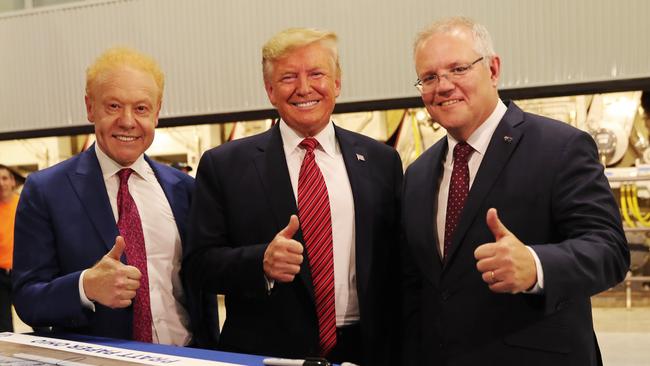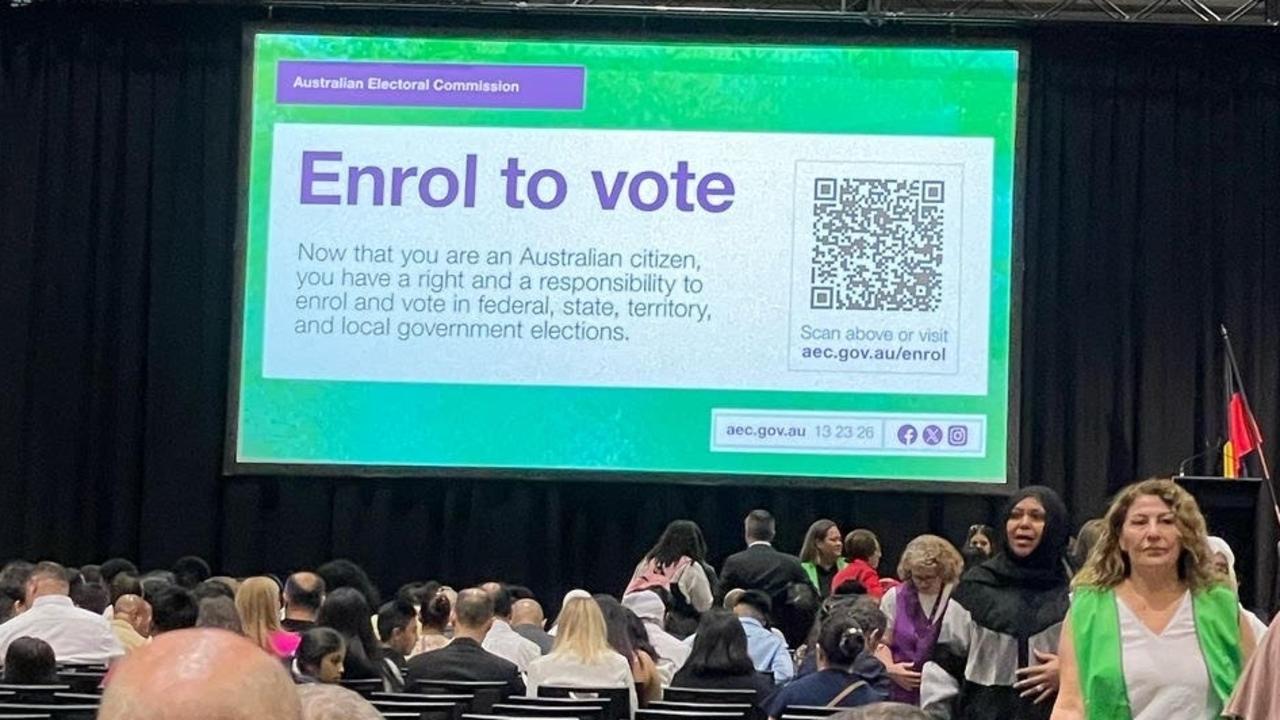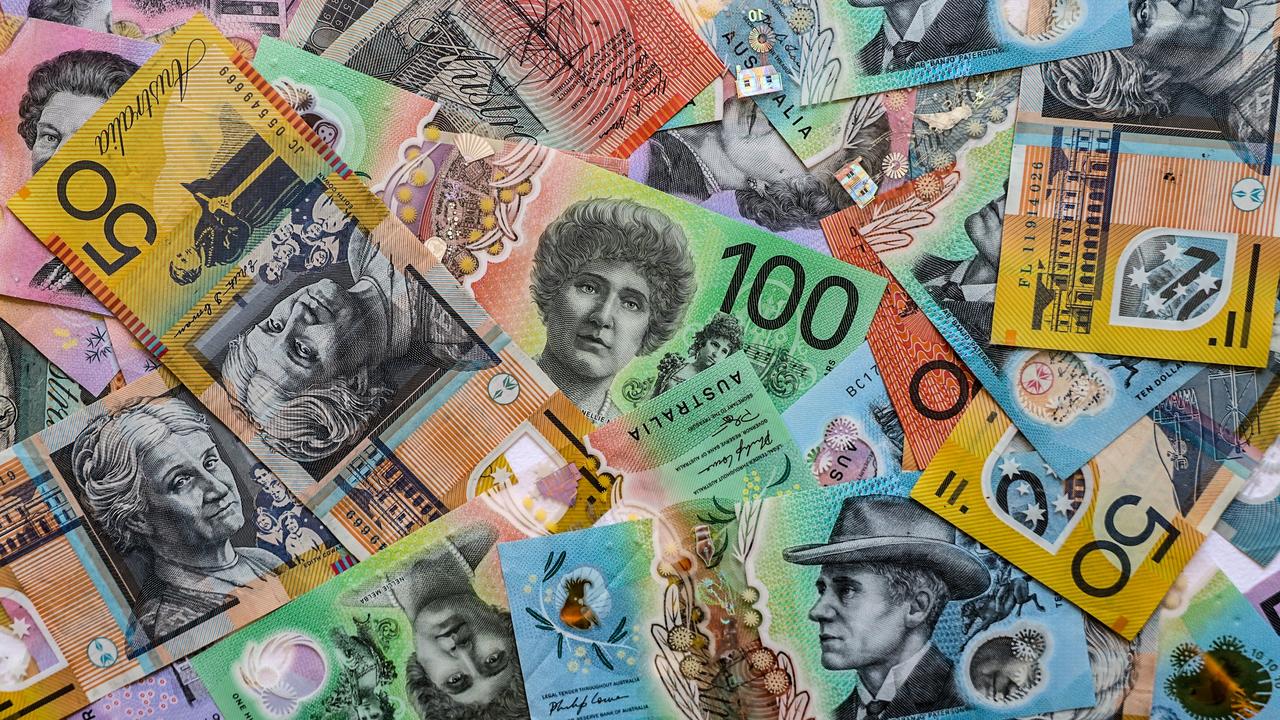Put US ties before alliance with China, say voters
A majority of Australians believe in a long-term relationship with the US over China.

A majority of Australians has indicated the Morrison government should put the long-term relationship with the US ahead of China, despite the vital economic links with the Asian superpower.
As Labor on Sunday attacked Scott Morrison over his handling of the relationship with Beijing, an exclusive Newspoll revealed the strength of voter support for the Australia-US alliance was more than double those who believed the relationship with China was more important.
The Prime Minister returned on Friday from a week-long trip to the US where he attended a state dinner with President Donald Trump and continued his push for China to be reclassified as a developed nation.
The Newspoll shows 56 per cent of Australian voters believed that if Australia had to prioritise one relationship over the other, it would be the US that was more important. This compared with a quarter of voters believing China should be the priority.
NEWSPOLL: ALP sheds support but Albanese turns tide
Click here for full Newspoll results
Opposition defence spokesman Richard Marles — who last week met with the head of a Chinese think tank linked to the United Front organisation — on Sunday lashed the government over its “inept” handling of Australia-China relations and called for stronger defence co-operation with Beijing.
The deputy Labor leader, who delivered a speech last week slamming talk of a new Cold War as “silly and ignorant”, said the government had increased tensions with China by “taking pot shots” amid Beijing’s escalating trade war with the US.
Newspoll showed 46 per cent of Labor supporters were strongly inclined to see the US remain as Australia’s key relationship ahead of China, with Coalition voters overwhelmingly in favour of the US relationship at 70 per cent.
While China remains Australia’s largest trading partner, the US is the country’s largest source of direct foreign investment, with the US strategic alliance underpinning the nation’s regional security.
Mr Morrison has made continued calls for China to be reclassified from its developing nation status, which allows heavy subsidies for manufacturing under global trade rules, to a developed nation where it would be put on an equal footing with the rest of the developed world.
Mr Marles said China remained a developing economy under WTO rules and Australia should approach its position “in a respectful way”.
“What we saw … was the Prime Minister in the United States in the context of there being trade tensions between the US and China, and from there, taking pot shots, pot shots against our largest trading partner,” Mr Marles told the ABC.
Foreign Minister Marise Payne said the government had “maintained a clear and consistent position on Australia’s relationship with China”.
Senator Payne attacked Labor’s position on whether global trading rules needed to change, describing it as “confused” and said she was disappointed the opposition was politicising foreign affairs.
“China’s economy has undergone a major transformation since the ‘special rights’ for developing countries were drafted in the early to mid-1990s,” Senator Payne said.
“This has been positive for China and for the world economy but, as the Prime Minister said last week, it is important that China’s trade arrangements reflect its transformation and the responsibilities that go with it.”
Senator Payne said it was in Australia’s “national interest” to manage its relationship with China in a “respectful fashion” focusing on areas of “co-operation” while “addressing differences constructively”.
In her meeting with Chinese counterpart Wang Yi last week, the second meeting in the past two months, Senator Payne said they had discussed matters including trade and investment, human rights and the case of detained Australian citizen Yang Hengjun.
Senator Payne also declared Australia’s defence relationship with Beijing was aimed at “maintaining communication and building mutual trust and understanding”.
Mr Marles on Sunday confirmed he did not “specifically” raise the case of Dr Yang during his visit to China, describing it as a “complex situation”.
The Newspoll survey, conducted between September 26-28 and based on 1658 interviews, showed the strength of support for US ties was greater among younger voters, aged between 18-34, and voters aged over 65.
The lowest support was among those aged between 50-64 at 53 per cent.
About 19 per cent of voters were uncommitted on whether the government should prioritise relationships with the US or China.
Mr Marles, who travelled to China on a sponsored study tour last week with Labor frontbencher Tanya Plibersek and Queensland LNP MP Ted O’Brien, accused the Coalition of “terrible management” of relations with Beijing.
“If you ask the question has the relationship been managed well from an Australian point of view over the last six years, then the answer is that it has been managed terribly,” he said.
“There has been complete ineptness on the part of this government, and that is a matter of concern for everybody in this country who is engaged in export to China, and everybody in this country who benefits from that.
“And we’re talking about millions of Australians in that category.”
Mr Marles, who met Chinese government officials and advisers during his sponsored travel, said the communist nation no longer viewed Australia in the “serious way in which it has seen us in the past”.
“It is a very complex relationship. And to be fair, there’s a whole lot of issues in respect of this where, you know, we can point to behaviour of China, which has led to the relationship not being in a good place,” he said.
“But, ultimately, Australia has control of its own behaviour, that’s the only thing that we control.”
On Sunday, Mr Marles and Ms Plibersek defended a meeting last week with Wang Huiyao — the founder and president of the Centre for China and Globalisation.
Dr Wang last year pulled out of a US panel after his links with the United Front Work Department were raised by a Republican senator.
Liberal MP Gladys Liu has been criticised by Labor over her links to the same group.
A spokeswoman for Mr Marles said the Chinese study tour organised by China Matters was a “bipartisan visit which included Ted O’Brien”.
“There is a huge difference between meeting with a person from this group and actually being a part of it. The China Matters study tour is not about influence, rather it is about understanding the relationship between Australia and China,” the spokeswoman said.
ADDITIONAL REPORTING: OLIVIA CAISLEY


